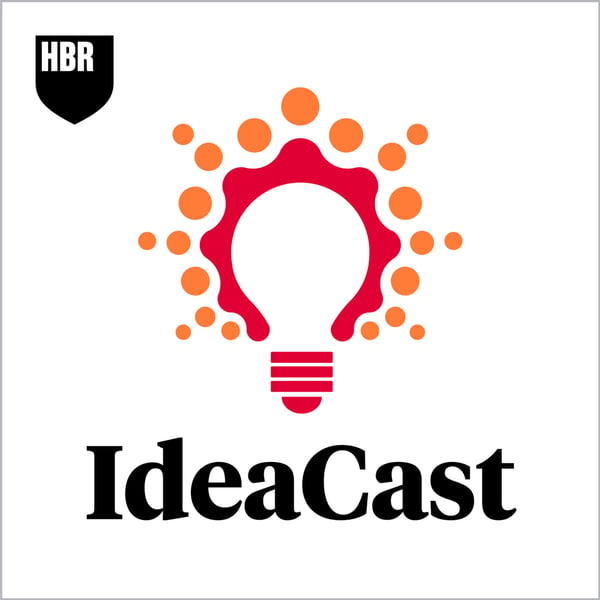What Business Leaders Should Know Now About the Metaverse
HBR IdeaCast
Harvard Business Review
4.4 • 1.9K Ratings
🗓️ 30 August 2022
⏱️ 28 minutes
🧾️ Download transcript
Summary
Transcript
Click on a timestamp to play from that location
| 0:00.0 | So you got the job. Now what? Join me, Eleni Mata, on HBR's new original podcast, New |
| 0:08.1 | Here, the Young Professionals Guide to Work, and how to make it work for you. Listen for |
| 0:13.8 | free wherever you get your podcasts. Just search New Here. See you there! |
| 0:30.0 | Welcome to the HBR IdeaCast from Harvard Business Review. I'm Allison Beard. |
| 0:49.0 | The sci-fi novelist Neil Stevenson coined the term Metaverse in his 1992 books No Crash. |
| 0:54.8 | He described a virtual world that people entered to escape the dystopian real world |
| 0:59.2 | around them. And we've seen various versions of the same idea appear in other fiction and film |
| 1:03.9 | since. What's more, companies like Second Life, Minecraft, and Roblox, have spent the past decade or |
| 1:09.6 | two building their own Metaverses. More recently, the biggest tech industry players, from Microsoft, |
| 1:15.6 | to Facebook, Nometta, say they're getting in the game. But when we talk about the Metaverse, what exactly do |
| 1:22.3 | we mean? What will it take to build it? And do we even want one? Matthew Ball is the CEO of |
| 1:28.0 | Appilian, the former head of strategy for Amazon Studios, and the author of the Metaverse and how it |
| 1:33.5 | will revolutionize everything. He's here to talk about all things Metaverse. Hi, Matthew. Hi. |
| 1:45.8 | So you already heard my first question. What exactly is the Metaverse? How do you define it? |
| 1:51.3 | So I define the Metaverse as a massively scaled and interoperable network of real-time rendered 3D |
| 1:58.8 | virtual worlds, which can be experienced persistently and synchronously by an effectively unlimited |
| 2:05.4 | number of users with an individual sense of presence. What's really important to understand is that |
| 2:11.2 | is more of a description than it is a definition. The internet is actually defined as the internet |
| 2:16.8 | protocol suite, but we find it more helpful to describe it. And what I've described is essentially |
| 2:22.7 | a parallel plane of existence, a persistent virtual world that affords us most of the things that we |
| 2:29.3 | can do in the real world. We're all in it. It has infinite memory. We can take object A from store A |
| 2:36.0 | to store B, and it's a live experience rather than just a static virtual world, such as those we |
... |
Please login to see the full transcript.
Disclaimer: The podcast and artwork embedded on this page are from Harvard Business Review, and are the property of its owner and not affiliated with or endorsed by Tapesearch.
Generated transcripts are the property of Harvard Business Review and are distributed freely under the Fair Use doctrine. Transcripts generated by Tapesearch are not guaranteed to be accurate.
Copyright © Tapesearch 2025.

